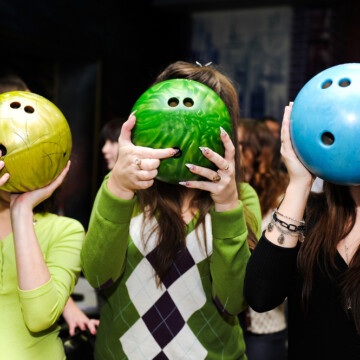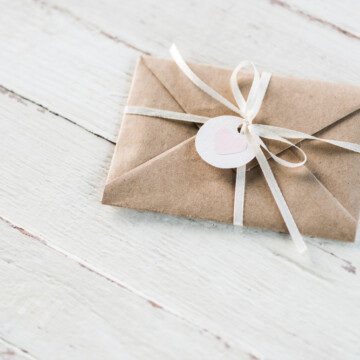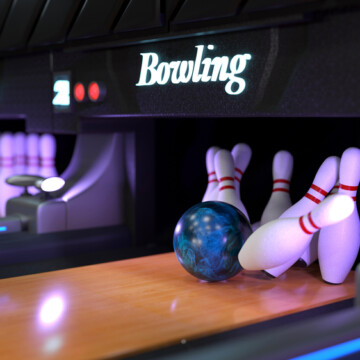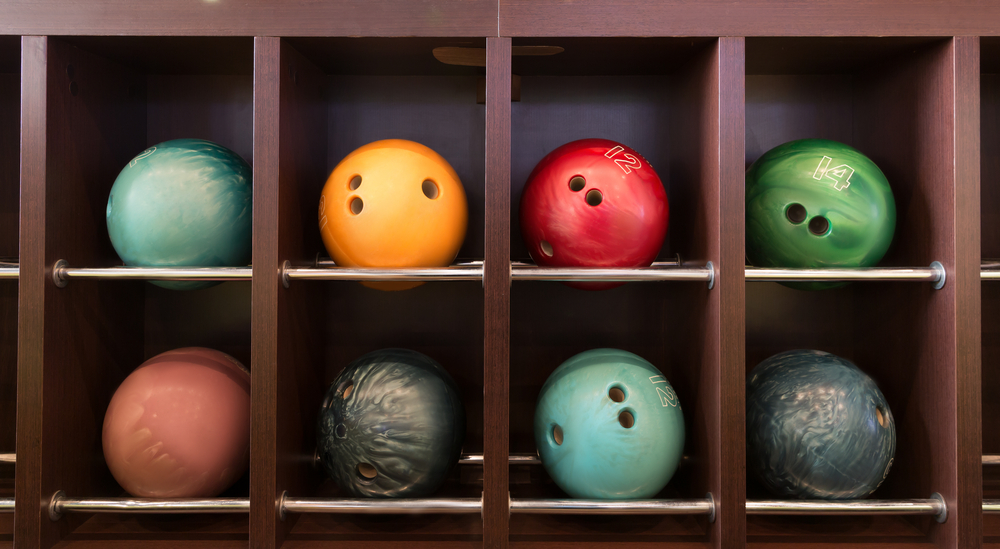
If you're a bowler, you know that keeping your ball clean is essential to your success on the lanes. Not only does it keep your ball looking great, but it also helps to prevent those pesky skids that lead to gutter balls.
Which you typically handle by keeping a microfiber towel in your bowling bag.
But what do you need when the regular 'wipe off' isn't enough? There are several commercial bowling ball cleaners on the market, but they are expensive and often contain strong synthetic compounds.
Luckily, you don’t have to use them if you don’t want to. In this article, we will discuss some of the best homemade bowling ball cleaners you can make yourself at home for a clean bowling ball.
Contents
Top Homemade Bowling Ball Cleaners
Some of the most unsuspecting ingredients in your pantry or kitchen are often great cleansers. Here are some ways you can put them to work and make an effective bowling ball cleaner.
Vinegar and Water
Vinegar is a natural disinfectant and can be used to clean just about anything. It’s got a powerful smell, but it will dissipate quickly once the ball is dry.
Some people soak their bowling balls in a vinegar solution, but we recommend using a cloth soaked in vinegar to scrub the ball clean instead.
To clean your ball without soaking it, pour 1 cup of vinegar into a large bowl of warm water and then wipe your ball down with the mixture. Afterward, wipe the ball clean with a damp cloth and dry it with a microfiber towel. You can also add the mixture to a spray bottle and spray it on the ball.
Note: Vinegar can be harmful to some types of bowling balls, so be sure to check your ball's care instructions before cleaning it with this method.
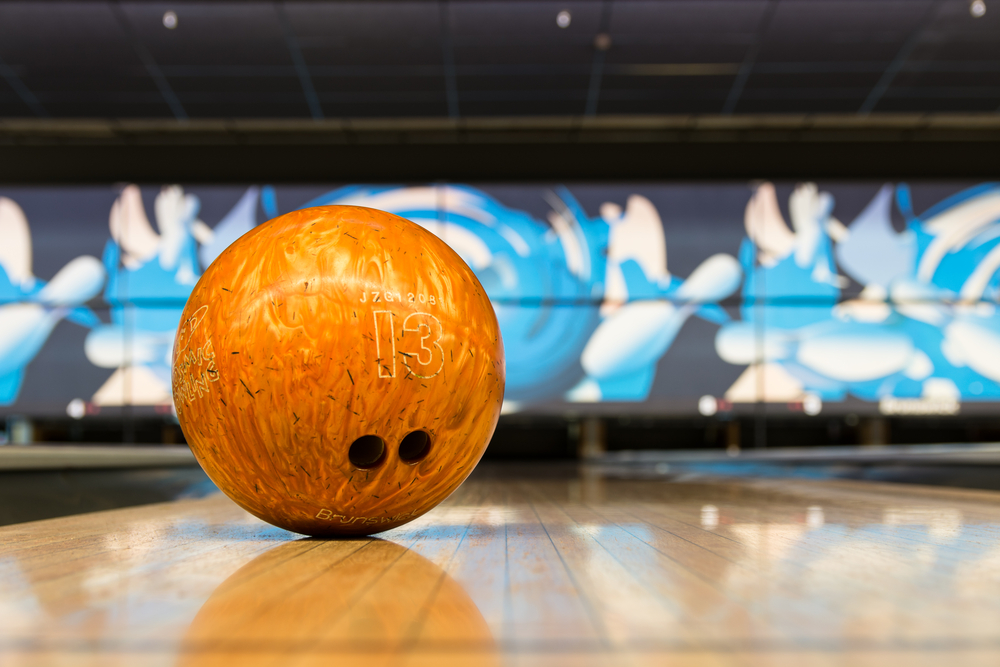
Lemon Juice and Water
One of the simplest and most effective ways to clean your bowling ball is with a mixture of lemon juice and water. The lemon juice breaks down the bowling lane oil on the ball without ruining its coverstock (the outermost portion of the ball).
Simply add ½ cup of lemon juice to a bowl of warm water and mix it together.
Load up a towel with the mixture and wipe your ball down. Wipe it down with a damp towel and dry it with a microfiber towel.
Then allow the ball to air dry the rest of the way out of direct sunlight.
Dish Soap and Water
No matter how oily your bowling ball has gotten, liquid dish soap (Dawn dish soap) and water can get it clean. To use dish soap to clean your bowling ball, here's what you need to do:
- Fill a bowl with warm to hot water, and then add a few drops of dish soap.
- Mix the water and soap together until the water is sudsy.
- Use a towel to apply the mixture to the ball. Scrub a bit without using too much force.
- Rinse the ball and wipe it dry with a microfiber cloth.
- Allow it to dry in the open air.
Key Takeaways
- Homemade Bowling Ball Cleaners: Use pantry items like vinegar, lemon juice, or dish soap mixed with water for effective, eco-friendly cleaning. Avoid commercial cleaners with harsh chemicals to protect your ball and the environment.
- Cleaning Techniques: Apply solutions with a cloth or spray bottle, scrub gently, rinse, and dry with a microfiber towel. Avoid soaking or using high-pressure washers to prevent damage.
- Heavy Duty Cleaning Options: For stubborn grime, a mix of alcohol, Simple Green, and water can deep clean without harming the ball’s surface. Test on a small area first to ensure compatibility.
- Safety Tips: Wear gloves to protect your hands during cleaning and work in a well-ventilated area to avoid inhaling fumes from strong substances like alcohol.
- Maintenance Advice: Check your ball’s care instructions before trying new cleaning methods. Regular cleaning extends the life of your ball, maintains performance, and saves money compared to commercial products.
Heavy Duty Homemade Bowling Ball Cleaner
If your bowling ball is really dirty, you may need a more heavy-duty cleaner than the ones above. The below recipes are for those times when your ball just won't seem to come clean, and a deep clean is needed.
Alcohol
Alcohol is a potent cleaning agent that can be used to clean your ball. However, it can also damage the ball's surface if you're not careful.
To clean your ball with alcohol, simply pour some rubbing alcohol onto a clean cloth and wipe the ball down. You don't need to add anything else to the ball.
The alcohol will lift the dirt and grime from the ball's surface within minutes. However, you may need to use a bit of elbow grease to get it all off.
Here are some tips to follow when using alcohol to clean your ball:
- Always cleanse the ball in a well-ventilated area. You don't want to be breathing in the fumes from the alcohol.
- If the smell of the alcohol is bothersome, you can wipe the ball down with a damp cloth after wiping it down. This will help to remove the strong alcohol smell.
- Don't soak your ball in alcohol. This can damage the ball's surface, causing it to warp. If you're using isopropyl alcohol, be sure to check the ball's care instructions before cleaning it. Some balls are not meant to be cleaned with this type of alcohol.
Alcohol, Simple Green, and Water
This mix of alcohol, Simple Green, and water is known to be a really effective way to clean your bowling ball. The simple green solution is a great option if you notice that the previous cleaning methods aren't doing the job.
To clean your ball with this method, mix equal parts alcohol, simple green, and water in a bowl. Rub the mixture onto the ball using a clean cloth.
Let it sit for a couple of minutes before wiping the mixture off with a damp cloth. You can then dry your ball with a clean microfiber towel.
There you have it! These are some of the best standard and heavy-duty homemade bowling ball cleaners. Experiment with different methods and see which one works best for you.
Remember to always take a peak at the care instructions that came with your ball (if you have them) to avoid damaging it.
| Cleaner Type | Ingredients | Application Method | Special Notes |
|---|---|---|---|
| Vinegar and Water | 1 cup vinegar, warm water | Cloth or spray bottle | Test on ball first; vinegar smell dissipates after drying |
| Lemon Juice and Water | ½ cup lemon juice, warm water | Towel application, then rinse and dry | Effective for breaking down lane oil |
| Dish Soap and Water | Few drops of Dawn or other liquid dish soaps, warm water | Towel scrub, rinse, then air dry | Suitable for oily balls |
| Alcohol | Rubbing alcohol | Clean cloth wipe | Use in ventilated area; test first |
| Alcohol, Simple Green, and Water | Equal parts of each | Rub on with cloth, sit, wipe off, and dry | For deep cleaning; verify ball’s material compatibility |
Things to Avoid While Cleaning a Bowling Ball
Though these cleaning methods are gentle and safe for your bowling ball, there are still some things you need to be careful of. Here are some tips to follow to keep your ball clean and in excellent condition.
- Never use harsh chemicals on your ball. This includes bleach, ammonia, and acetone. These chemicals can ruin your ball's coverstock.
- Always wear gloves when cleaning a bowling ball. This will help to protect your hands from dirt, grime, and any byproducts from the cleansing process.
- Never clean your ball with a power washer. The high-pressure water can cause superficial damage to the ball's coverstock.
- Never put your ball in the washing machine. The harsh detergents and high temperatures can ruin your ball in a hurry.
- Don't submerge a bowling ball in liquid. Your ball could absorb the liquid, causing damage to the interior of the ball's core, and the finger holes could get wet
- Avoid using heat to dry your ball. High temperatures can damage the ball's coverstock. Instead, allow your ball to air dry in a cool, well-ventilated area.
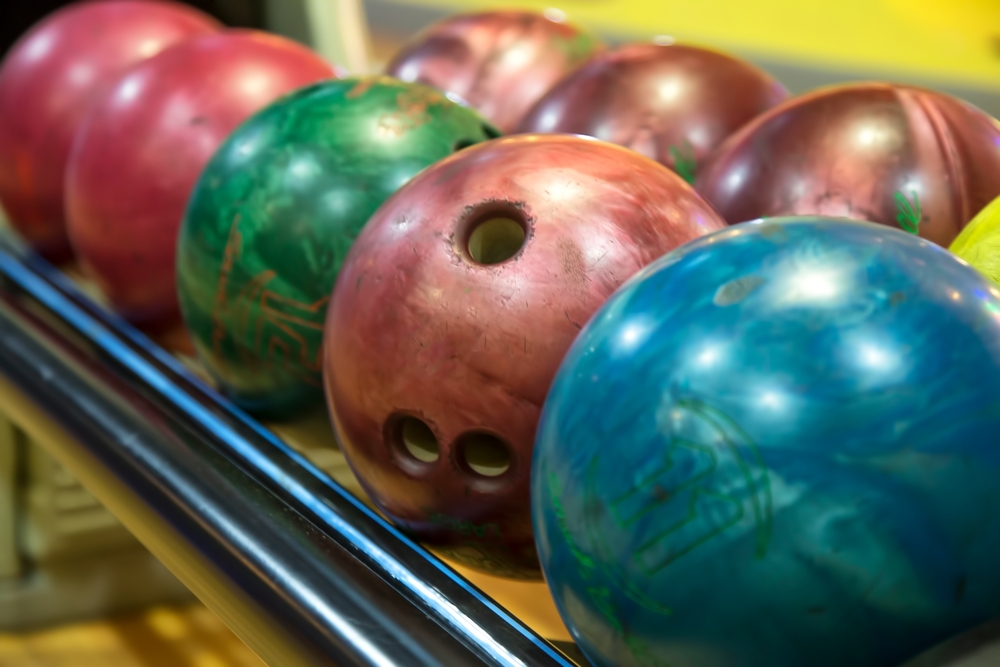
Benefits of Homemade Bowling Ball Cleaners vs. Commercial Ones
There are a few benefits that come along with using homemade cleaners as opposed to commercial ones. You may already have some benefits in mind. Here are some of the top reasons people go homemade:
- Homemade cleaners are generally much cheaper than commercial cleaners. This is because you likely already have most of the ingredients at home.
- Homemade cleaners are much gentler on your ball.
- Homemade cleaners are generally much better for the environment. This is because they don't contain harmful chemicals that can pollute the air and water.
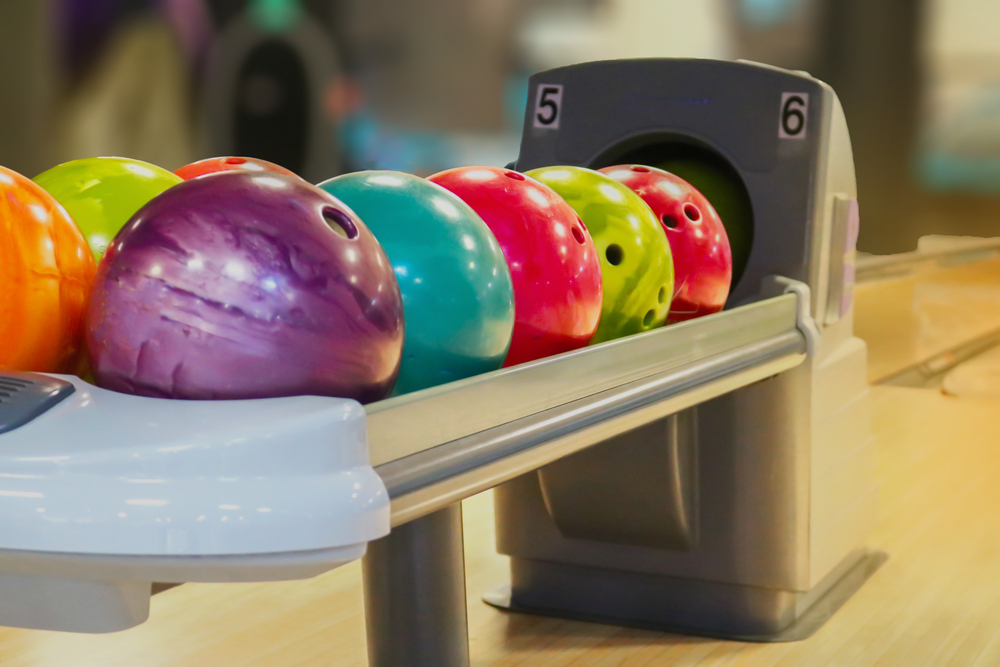
Take Your Cleaning Session up a Notch With a Bowling Ball Spinner
A bowling ball spinner is a tool that you can use to make the cleansing process less labor-intensive. Non-electric bowling ball spinners have a set of bearings that help you rotate your ball without much friction. Electric bowling ball spinners have a motor that enables the machine to rotate your ball for you at high speed.
This quick rotation allows you to clean your ball in a couple of minutes versus an hour or more. Either of these is an excellent option if you want to save your energy for other things, like bowling!
Related Articles
My Final Words
Maintaining a clean bowling ball is pivotal for consistent performance, ball maintenance, and longevity. Utilizing simple, homemade solutions like vinegar, lemon juice, dish soap, or a blend of alcohol, water, and Simple Green or Fabuloso (also known as the purple stuff), bowlers can efficiently remove lane oil and dirt without harming the ball's coverstock.
These methods are cost-effective and eco-friendly, minimizing the environmental impact by avoiding harsh chemicals found in commercial cleaners. It's crucial to follow your ball's specific care instructions and opt for gentle cleaning techniques, ensuring the ball remains in top condition for the lanes. By integrating these practical, homemade cleaners into your routine, you can preserve the quality of your bowling ball, enhance your game, and contribute to a greener planet.
Kira Byrd, a Certified Fraud Examiner, holds a B.S. in Accounting from the University of Alabama at Birmingham. With a passion for bowling from her childhood, Kira has poured her expertise and personal experiences into creating and nurturing Bowling For Beginners. Kira's mission is to meet new bowlers where they are and guide them toward consistently achieving higher scores. With a focus on skill development and strategic techniques, she empowers readers to take control of their game and unlock their true potential.
Bowling For Beginners embodies strict editorial integrity, ensuring reliable and unbiased information. Kira's commitment to delivering valuable insights and practical strategies is reflected in every article. Here's an explanation of our editorial policy and how we get money.



